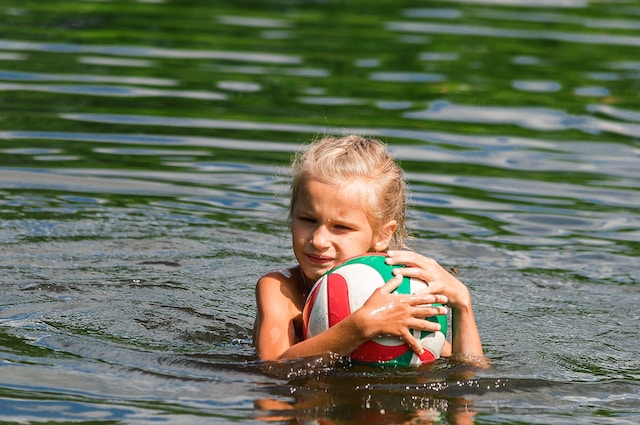Dodging the Deep End: Common Mistakes to Avoid When Teaching Kids to Swim
Swimming is a vital life skill that provides an excellent form of exercise and a foundation for water safety. Teaching your child how to swim can be a rewarding experience, but it can also be fraught with challenges. This guide will outline the most common mistakes to avoid when teaching kids to swim, ensuring a positive and successful learning journey.
- Skipping Water Comfortability
It’s a common misstep to jump straight into swimming techniques without first ensuring the child is comfortable in the water. The first step should always be to create a fun and relaxed environment where the child can grow accustomed to the feeling of water. Allow them to splash, play, and get a feel for buoyancy and how to move in water. Skipping this vital first step can lead to fear and resistance in later stages.
- Pushing too Hard
Every child learns at their own pace, and trying to rush the process will often do more harm than good. Pushing a child to perform techniques or stay in the water when they’re uncomfortable or scared can foster a negative association with swimming. Instead, make sure to celebrate small achievements and progress at the child’s pace.
- Overlooking Safety Practices
Just because a child has started to learn how to swim does not mean they are immediately safe around water. It’s essential to maintain constant supervision, use safety equipment like floaties or life vests, and enforce pool rules consistently. Never assume that a child is “drown-proof” because they’ve had a few lessons.
- Not Practicing Enough
Swimming skills, like any other, need to be reinforced through regular practice. A common mistake is believing that a weekly lesson is enough. While lessons are crucial, practicing at home between lessons can reinforce skills and build confidence.
- Neglecting to Teach Breath Control
Proper breath control is vital to good swimming but is often overlooked in early lessons. Without it, kids can swallow water, which might discourage them or even pose a choking risk. Teach kids to blow bubbles underwater, then gradually introduce breath control as part of their swimming techniques.
- Ignoring Child’s Fears
Swimming can be a daunting experience for a child. Ignoring their fears and anxieties is not the best way to encourage them. Instead, address their fears, provide reassurance, and offer solutions. For instance, if they are afraid of getting water in their eyes, introduce goggles.
- Poor Communication
Children need clear, concise instructions. Too much information can overwhelm them, leading to confusion and mistakes. Break down techniques into simple steps and consistently use the same terms for each technique to foster understanding.
- Not Making it Fun
Learning to swim should not be a chore. If it becomes too much like a strict class, kids can lose interest. Incorporate games and fun activities into the learning process to keep them engaged and excited about swimming.
Conclusion
Teaching kids to swim is a challenging but immensely rewarding task. Avoiding these common mistakes will make the process smoother and more enjoyable for both you and your child. Remember, the goal is not only to help them learn a valuable skill but also to foster a lifelong love for swimming.


